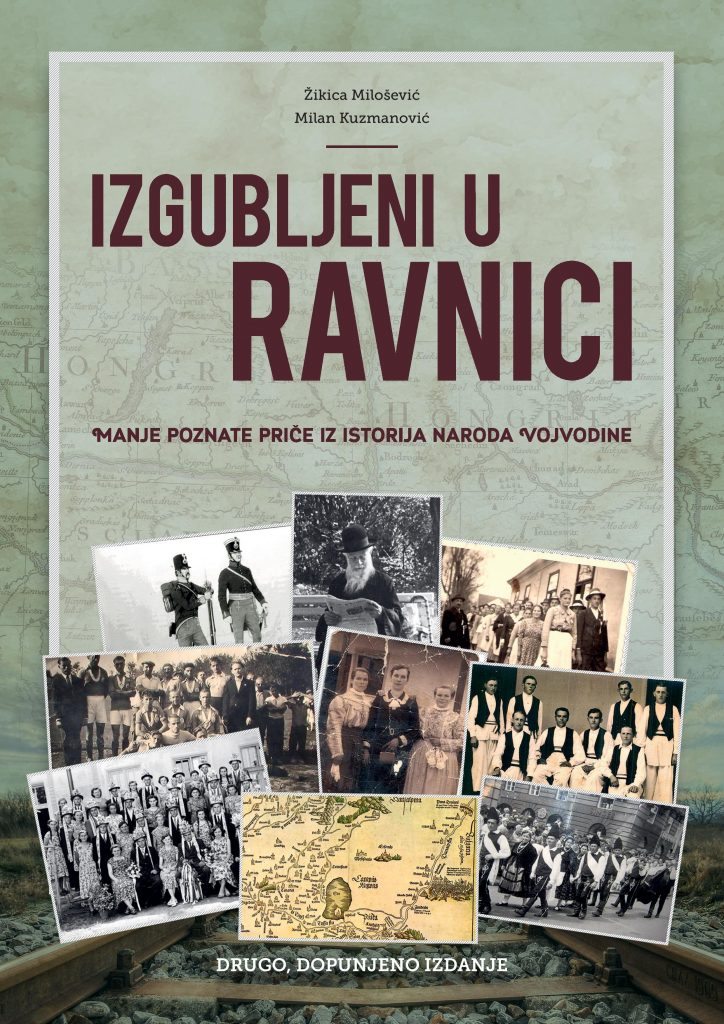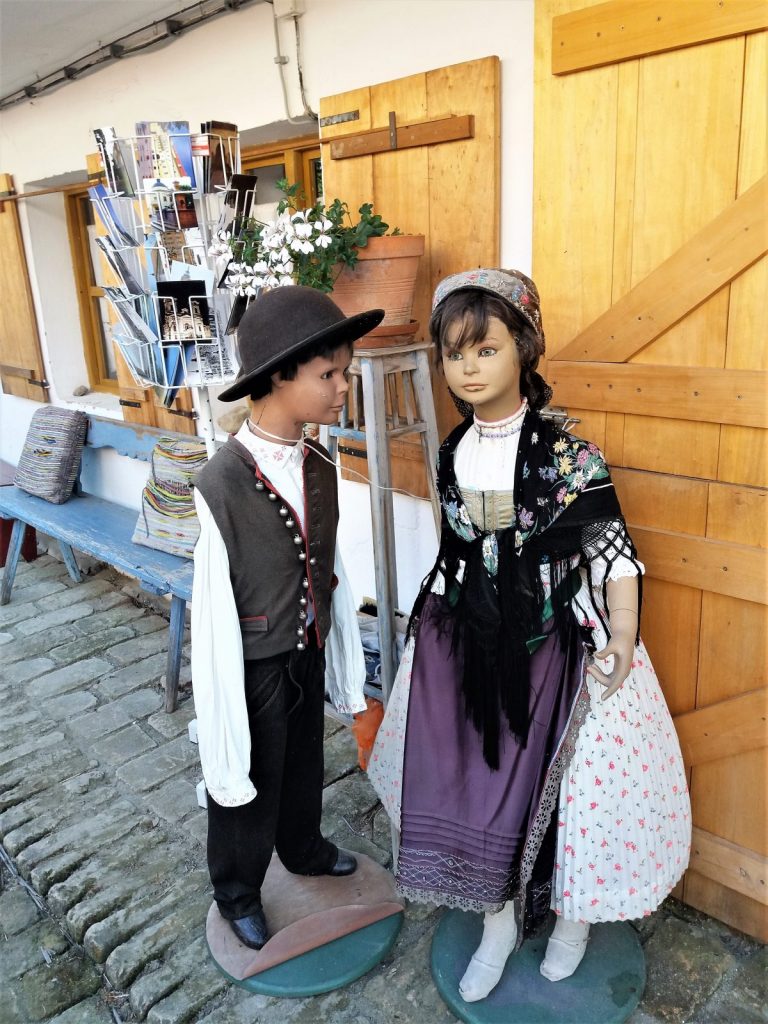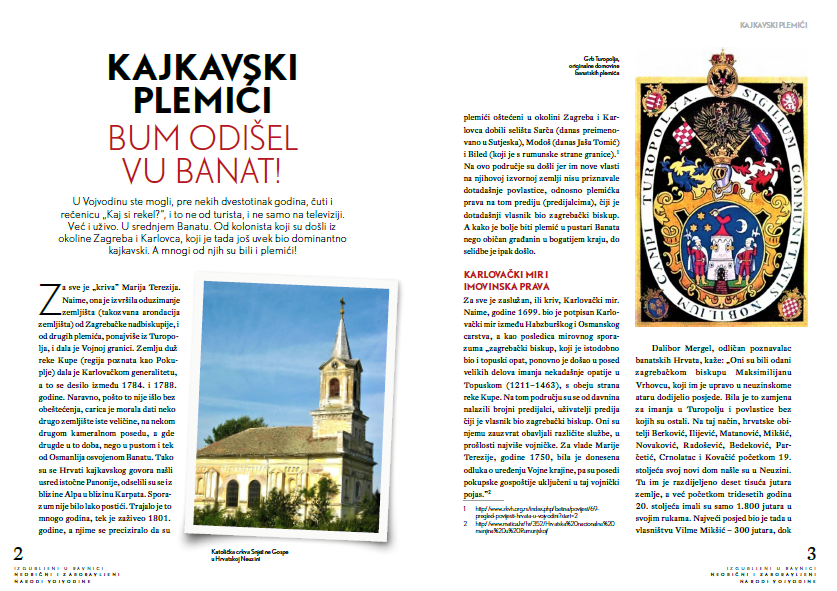Second edition of the Izgubljeni u Ravnici (Lost in the Plains) book in bookstores now!
After the success of the first edition of the popular history book ‘Lost in the Plains’, written by Žikica Milošević in late 2017, and published by Color Media Communications, a second, supplemented edition has seen the light of the day. This time, the young writer Milan Kuzmanović, who has just returned from postgraduate studies in Shanghai, co-authored the book.

The topic is again the history of the peoples of Vojvodina, some of whom came to stay forever in the plains of Vojvodina (very few hills, truth be told). Some nations were not so lucky, so they moved away or assimilated with others and eventually completely disappeared. The book talks about interesting nations that you probably never knew they lived in Vojvodina such as the Spaniards, Italians, French, Greeks, Armenians, and Poles, as well as those well-known from our history like the book character called Kir Janja who was a Wallachian, the book’s author Jovan Sterija Popović or Mihajlo Pupin or Kosta Hadži. There are also Albanian Catholics who became Croats, Albanian Orthodox and Bulgarians who became Serbs, then Czechs who have their village in the south of Banat where they speak only the Czech language, the Bulgarian Catholics who write in Latin script, but also the Croatian nobles of central Banat, the Kalmyks, Asian Buddhists who came and went with the tsarist Russian army and nobility, the White Russians, the people who enriched the cultural scene of the Balkans upon their arrival, and of course, all those nations who are still living there. Then there are also Slovenian oilmen, the Serbian pirates from the Danube, the Romanian road bandits from the Carpathians, and even Muslims, who settled here after the Second World War. All of them are gracing the pages of this book, which also talks about the two saddest chapters in Vojvodina’s history – the Holocaust against Jews and the Danubian Swabians who suffered persecution and were thrown into concentration camps immediately after the war. Plus, the book goes a step further and describes the Seventh-day Adventists, as “the first conscientious objectors” or “the first resisters” in Serbia, Protestants who happened to co-live with the Serbs, just like in the American plains, but also Africans in Vojvodina, the latest addition to the stratum of Vojvodina immigrants.
„Indeed, in the best manner of the historical teachings of Fernand Braudel, as if they were followers of the French analysts, Milošević and Kuzmanović present to the readership Vojvodina in which peoples and civilizations have been mixing for centuries”

The book’s reviewer, Professor Boris Stojkovski, PhD, says: “Written in a beautiful style and in a language everyone can understand, this book is an inexhaustible source of curiosity to its readers, full of interesting and hidden stories about known, as well as lesser-known people that lived or are still living in contemporary Vojvodina. The significance of this book is that the authors have decided to present the two constants – multiculturalism and migration – as a fact of longevity. Although none of the authors is historians by vocation, they have a good command of the methodology of historical science. Indeed, in the best manner of the historical teachings of Fernand Braudel, as if they were followers of the French analysts, Milošević and Kuzmanović present to the readership Vojvodina in which peoples and civilizations have been mixing for centuries.”

Žikica Milošević, the main author of the book, says: “I am glad that we have prepared the second edition thoroughly, and that the field research was exciting and detailed. Many interesting interlocutors, exclusive pictures, and conversations with locals and historians are woven into this exciting book which will be fun reading material but will also broaden your horizons. I am confident of that.“
The new book has 33 tales, instead of 21 as in the first edition, and 260 instead of 132 pages. 12 tales are new and the rest are all supplemented with new facts. The book will cost 990 dinars and can be purchased from street booksellers, in Laguna bookstores and by order from Color Media Communications.